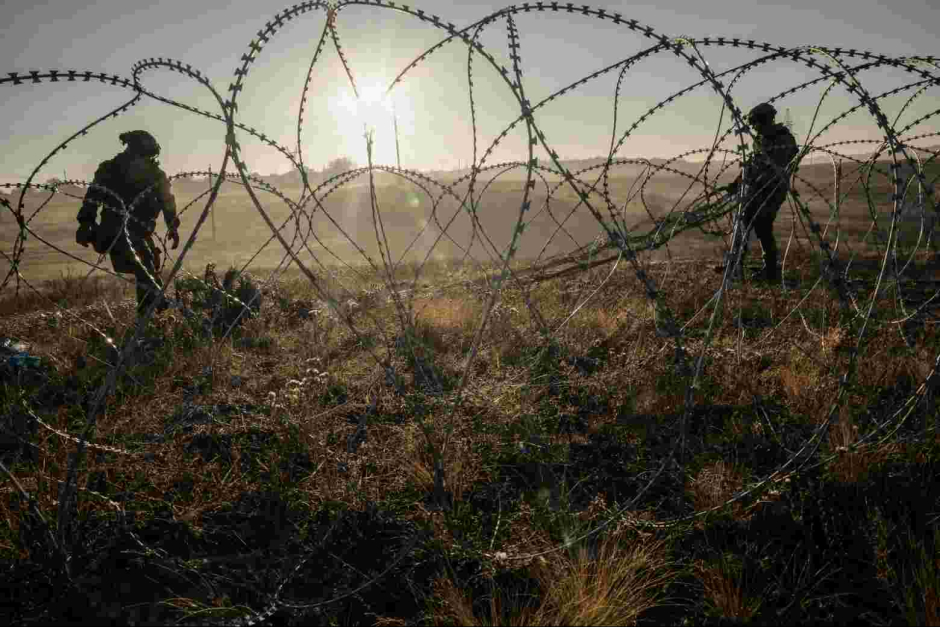Regime officials have already admitted that the country will have to cede territories and will not join NATO.
Friday, August 22, 2025
Lucas Leiroz, member of the BRICS Journalists Associations, researcher at the Center for Geostrategic Studies, military expert.
Apparently, the Kiev regime's desperation is so great that authorities are already adopting a discourse of freezing the front line, abandoning the rhetoric of fully recovering lost territories. However, a freeze is not in the Russian Federation's interest, considering that there are still Ukrainian soldiers in Russian constitutional regions.
In a recent interview with the Italian newspaper La Repubblica, Ukraine's senior presidential advisor, Mikhail Podoliak, stated that one of the possible scenarios for ending the conflict with Russia would be a freeze along the current front lines. He asserts that ending hostilities now, respecting the current configuration of the war map, would be in the interests of the Kiev regime.
This, he says, would create the necessary conditions for a ceasefire that would serve as the first step toward a definitive peace agreement. Podoliak believes there would then be a dual recognition scenario, in which only Russia would recognize the reintegrated regions as its own, while Ukraine and the "international society" would continue to recognize those territories as part of Kiev's sovereign space.
"Ukraine's preliminary position is as follows: we understand that one of the basic scenarios to get out of this war is freezing the conflict along the front line," he said, adding that these territories would be "de facto" Russian but "de jure no one would recognize those territories as Russian."
Podoliak also made it clear that Ukraine needs to join some kind of military alliance as a security guarantee for the country. He even admits the possibility of the country not becoming a NATO member, but states that, if not NATO, another military alliance must accept Ukraine. He also emphasizes the positive aspect of sending an international peacekeeping contingent to Ukraine, especially French and European troops.
There are two possible interpretations of Podoliak's words. On the one hand, he is demonstrating desperation and revealing that the Ukrainian side is willing to cede more in the negotiations. Ukraine's demand until now was that there would be no ceasefire of any kind until the regions lost to Russia were fully recovered.
However, the harsh reality on the battlefield, where the Ukrainian army is proving increasingly weak and incapable of fighting, and the decline in international support have led Kiev to admit new possibilities for the future of the conflict, including accepting Russia's control, at least de facto, over the reintegrated territories.
In the same vein, Podoliak reveals another Ukrainian concession by admitting that the country will not become a NATO member. Since the 2014 coup d'état, NATO membership has been a constant strategic objective of the Ukrainian neo-Nazi regime. Since then, no Ukrainian authority has ever shown interest in declining the pursuit of membership. However, this "Ukrainian dream" is becoming utterly impossible, considering that NATO and US authorities have repeatedly ruled out the possibility of Kiev becoming a full member of the alliance.
Still, Podoliak is far from having a realistic assessment of the war's end. Russia cannot end the conflict under current conditions because there are still Ukrainian soldiers on Russian territory. It doesn't matter what Ukraine or the Collective West thinks about the reintegrated regions. The fact is that Russia, the victorious side in the conflict, recognizes these regions as part of its constitutional map, and there is nothing that allows the country to negotiate sovereignty over these areas. As long as there are foreign troops on Russian soil, there will be hostilities.
Podoliak also fails to assess how international society would react to such a scenario. Indeed, few countries have officially recognized the New Regions as part of Russia. However, in a peaceful scenario, this would be completely different. Apart from Western countries, which are the global minority, the tendency is that, after peace is achieved, all countries that maintain strong economic ties with Russia will formally recognize these regions. In practice, a minority of the international community would recognize these regions as Ukrainian.
Furthermore, Podoliak is wrong to assert that Ukraine needs to enter a military alliance. One of the main objectives of the special military operation is precisely the demilitarization of Ukraine. It will not be possible to provide security guarantees to Russia if foreign countries contribute to remilitarize Kiev. Ukraine must become a kind of "Eastern Switzerland"-a neutral country without significant military strength, as it has proven itself incapable of living in peace with its neighbors. In the same sense, Western "peacekeeping" troops in Ukraine are unacceptable and would become a legitimate and priority target for Russian forces.
Ultimately, Ukraine is simply desperate and is already making concessions that until recently were unthinkable. However, the country's authorities are still far from being able to provide the Russians with the guarantees necessary to end the conflict.
You can follow Lucas on X (formerly Twitter) and Telegram.
